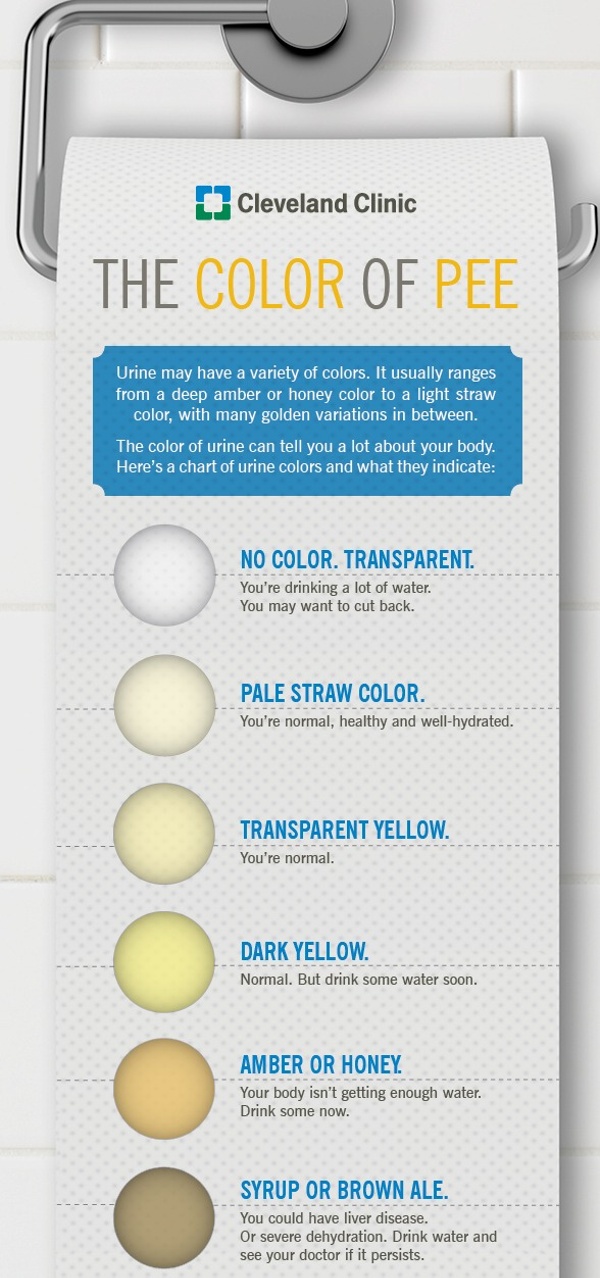Have you been forcing eight glasses of water down your
gullet a day because you need to stay hydrated? Chugging whole glasses at a
time to get it all in? Stop right now, because that is pointless.
The saying used to be “drink ‘til you pee clear,” but the
latest research shows that when you're gulping down water and spending your life
in the bathroom, it’s sailing right through your system. Clear pee means you’ve
accomplished nothing but filling the bowl. Water works best when sipped slowly
and with food. If the water doesn’t have nutrients to latch on to, it’s not getting processed well by your body.
The Cleveland Clinic released a new infographic stating that
colorless urine is a sign of overconsumption, and pale pee is more indicative of
a well-hydrated person. Medium yellow is fine, and dark yellow urine or darker means
it’s time to drink. Contrary to popular belief, you are not cleansing or flushing
your system when you drink water between meals. Your body is not absorbing
mass amounts of water at once; you’re literally just making water.
And, furthermore, you don’t need to drink only water. In a study by The American Journal of Clinical Nutrition, milk, tea and some juices were better
at keeping you hydrated. Shocker, right? Even beer and coffee were decent
hydrating drinks, though less great than water. Soda and sports drinks were the worst for hydration, but still better than nothing.
Part of this is because of the theory that nutrients help your
body absorb the water inside these beverages. Eating a little fruit while drinking works, too. Still, drink around 3 liters (about 12 cups a day) of liquid each day, but don’t
chug and don’t try to load up all at once to make up for a sipless morning.
Just drink healthy beverages all day long, and shoot for less than clear pee to
get the most bang for your hydrating buck. The good news is, you’ll be making
less trips to the bathroom if your drinks are going throughout your system and
not taking the highway to bowl town.
TL;DR: Be more efficient in meeting your hydration needs by
drinking beverages with food and not consuming large quantities of liquid on an
empty stomach.

